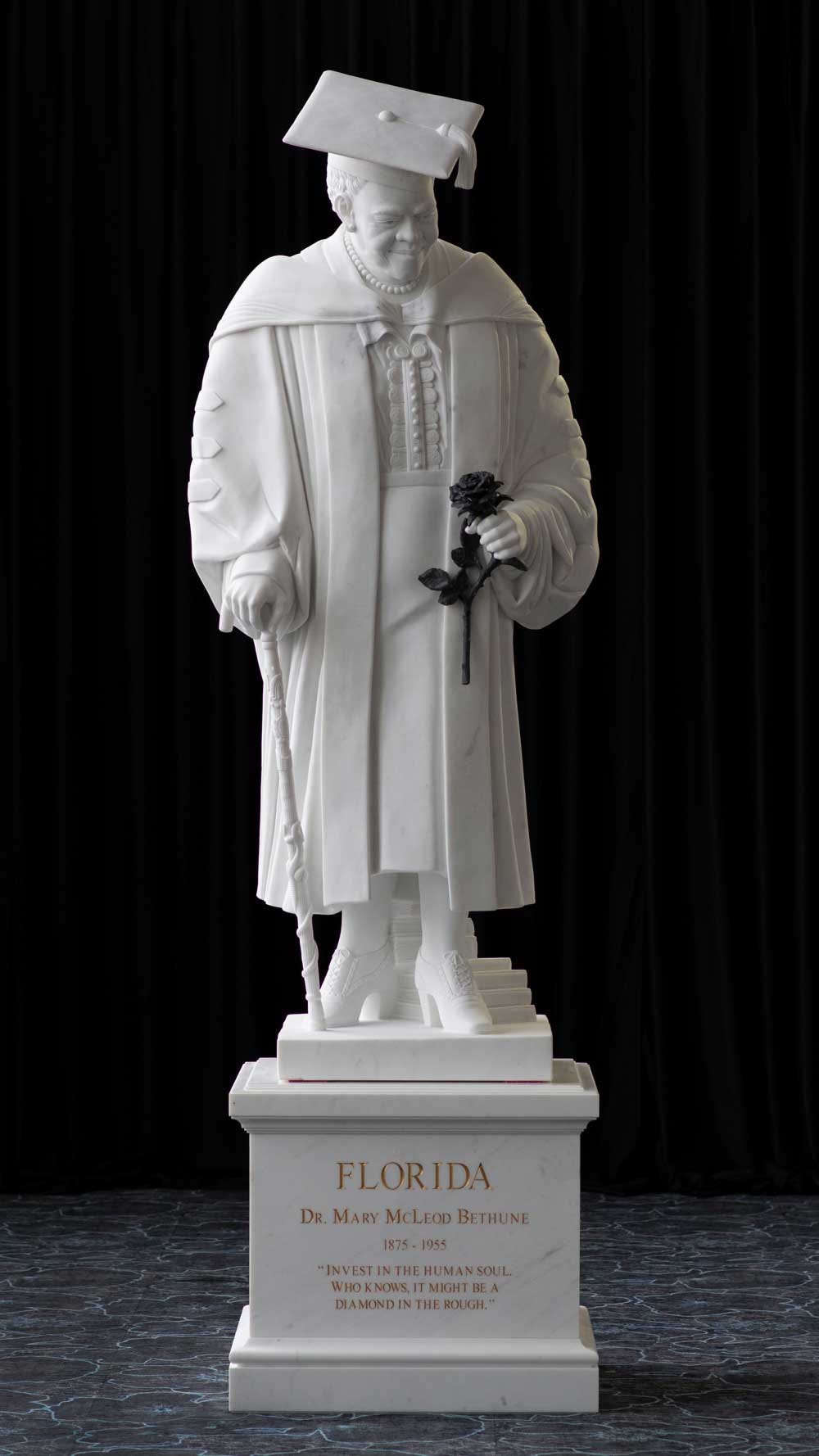On Wednesday this statue of Mary McLeod Bethune will be unveiled and dedicated in Statuary Hall in the U.S. Capitol Building. The statue is one of two that represents the state of Florida, the other one being John Gorrie. The statue of the Black educator, civil rights activist and suffragette replaces a statue honoring Confederate general Edmund Kirby Smith, which was dedicated in 1922 and removed a couple years ago.
This is a welcome change.
Washington, D.C. now has two statues/memorials honoring Bethune. The other one is located just a short walk north of the capitol building in Lincoln Park. It shares the space with Thomas Ball’s controversial Emancipation/Lincoln Memorial.
Lincoln Park is a great place to talk about the difference between history and memory and the recent controversy surrounding Civil War monuments. The Emancipation Memorial was turned to face the Bethune Memorial in the 1970s. It’s an effective way to place the two in conversation with one another.
I look forward to visiting both sites next week with teachers from around the country.





Very nice to see a leading educator honored in this way.
Kevin,
It's interesting to me that Bethune is being honored, and not the least of the reasons is that in 1930 Ida M. Tarbell was asked by Pictorial Review to nominate 50 women who, in her judgment, were the most outstanding in society. One of those she chose was Bethune. While today we might not think much about that for the year 1930 that was a bold move on Tarbell's part. Bethune herself acknowledged how special it was to be selected and related to Tarbell when they finally met face to face that a friend of hers who lived in Chicago called Bethune late at night after it was announced. Bethune had no idea what her friend was talking about. She told Tarbell that one of the benefits of being named was that a grant her school was seeking was given quick approval after the list came out.
Tarbell didn't get much pushback from people for naming Bethune, although I haven't gone through all her papers yet. What I find equally interesting is that while it made the African-American version of the Associated Press, very few AA papers even mentioned it either as news story or on the editorial page. I suspect that while they were happy for Bethune, they didn't feel Tarbell deserved any special praise or credit for acknowledging what they already knew to be the truth.
Best
Rob